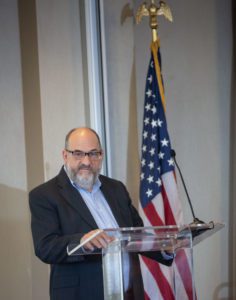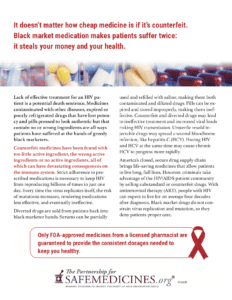Life-threatening counterfeit drugs taught Rick Roberts that medicine safety can't be taken for granted.

Safe medicines advocate Rick Roberts opening the Senate briefing, September 24, 2019.
Rick Roberts, a professor at the University of San Francisco and a member of The Partnership for Safe Medicines' Advisory Board, began thinking about the problem of medicine safety after he received two different counterfeit versions of Serostim (human growth hormone) to treat AIDS wasting syndrome in 2000. After giving himself an injection one day, Roberts noticed a stinging sensation that had never happened before. When he asked his pharmacist about it, he learned that authorities had found counterfeit versions of Serostim in the U.S. drug supply. His medicine was among the lots that were recalled.
For six months, Roberts and his doctor worried about the contents of the fake Serostim, and whether it might further damage his then-precarious health. Having safe and effective medicine was—and still is—a matter of life and death for AIDS patients. Eventually, test results revealed that for one month he had injected only a sixth of the medicine he needed. Another month's supply contained a different hormone— not what he had been prescribed at all.
Since this frightening experience, Roberts been a staunch advocate for medicine safety. He has testified before government bodies and spoken at conferences, on national radio, television, and in print media discussing pharmaceutical counterfeiting and related issues.
More from Rick Roberts:
- Black Market Medicines Can Ruin An HIV Patient’s Entire Drug Protocol (April 1, 2019)
- Buyer Beware: Public Health Concerns of Counterfeit Medicine, testimony before the Special Committee on Aging (July 9, 2002)
